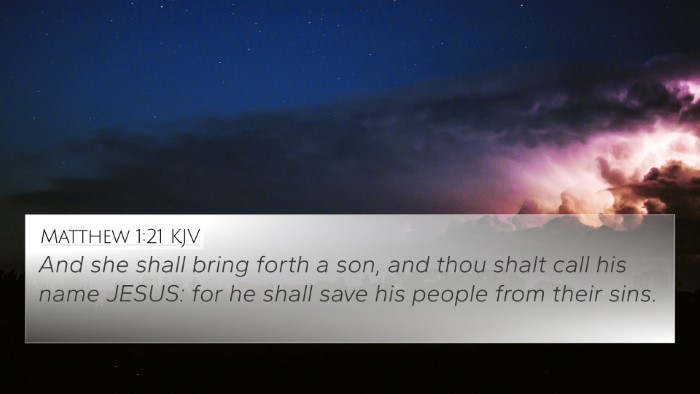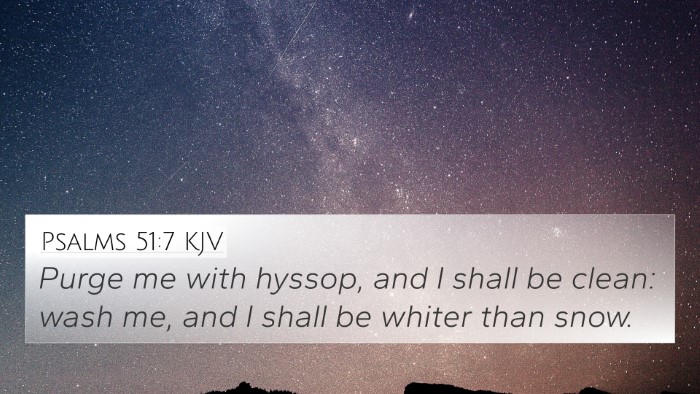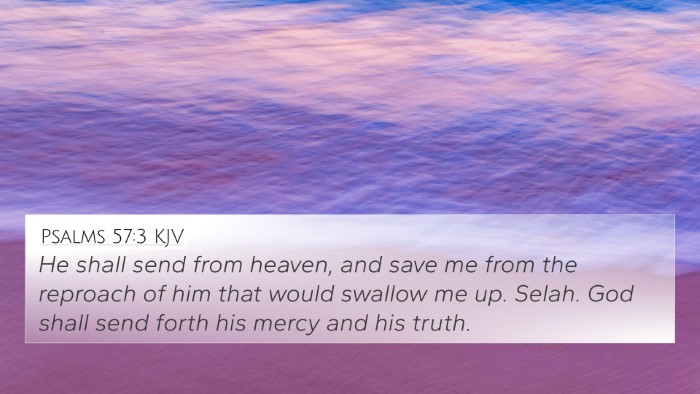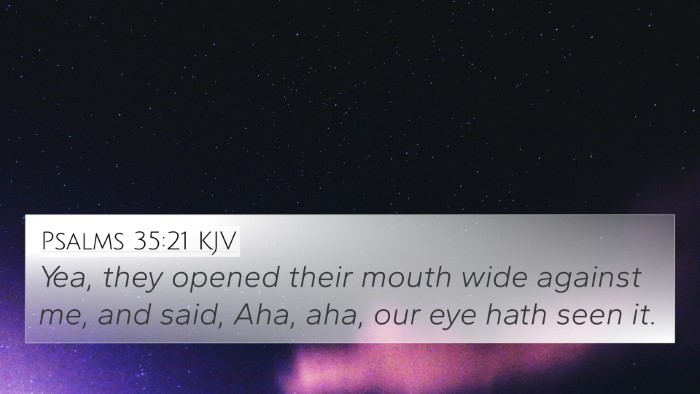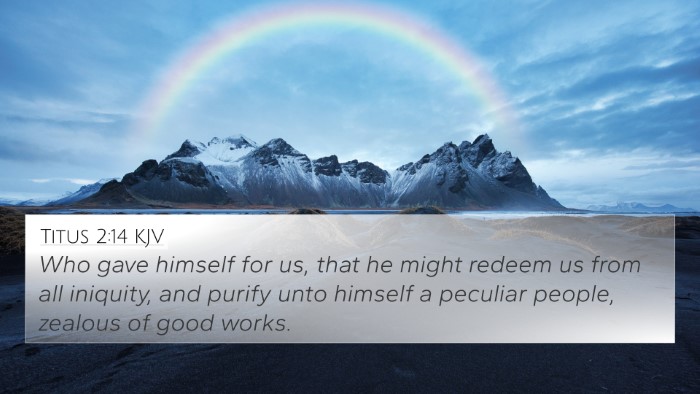Understanding Psalms 39:8
Psalms 39:8 states: "Deliver me from all my transgressions: make me not the reproach of the foolish." This verse reveals the deep yearning for deliverance from sin, emphasizing the psalmist's request for God's mercy and help in overcoming life's challenges.
Meaning and Interpretation
This verse articulates a plea for liberation from the burdens of transgressions. It highlights the relationship between the plea for divine assistance and the desire to live a life free from shame and reproach.
Key Themes
- Deliverance: The psalmist seeks freedom not just from sin but from its consequences.
- Shame and Reproach: The appeal emphasizes a desire to avoid being a source of mockery among the foolish.
- The Nature of Sin: There is a recognition of human frailty and the need for God's intervention.
Commentary Insights
Insights from public domain commentaries, such as those by Matthew Henry, Albert Barnes, and Adam Clarke, offer a deeper understanding of this verse:
- Matthew Henry: He discusses the psalmist's acknowledgment of his own weaknesses and his deep desire for God's mercy. Henry highlights the importance of confession and the power of divine grace.
- Albert Barnes: Barnes focuses on the appeal to God as a deliverer from transgressions, stressing that true wisdom seeks salvation and understands the ridicule associated with sin.
- Adam Clarke: Clarke comments on the plea for deliverance from the shame that accompanies a life marked by transgression. He adds that the foolish, who lack insight, may mock those who struggle with their sins.
Cross-References with Related Scriptures
Psalms 39:8 can be interconnected with several other Bible verses, illustrating the thematic connections across scriptures. Here are some relevant cross-references:
- Psalms 32:5: "I acknowledged my sin unto thee, and mine iniquity have I not hid." - This verse highlights the importance of confessing sin to seek God's forgiveness.
- Psalms 51:1-2: "Have mercy upon me, O God, according to thy lovingkindness..." - A plea for mercy reinforces the theme of seeking deliverance.
- Isaiah 59:1-2: "Behold, the Lord's hand is not shortened, that it cannot save..." - Emphasizes that sin creates a barrier between God and man, resonating with the desire for deliverance in Psalms 39:8.
- Romans 7:24: "O wretched man that I am! who shall deliver me from the body of this death?" - This New Testament echo connects the struggle against sin and calls for deliverance.
- Proverbs 13:5: "The righteous hateth lying: but a wicked man is loathsome, and cometh to shame." - Links to the idea of not wanting to be a reproach among the foolish.
- James 4:7-8: "Submit yourselves therefore to God. Resist the devil, and he will flee from you." - Highlights the need for reliance on God in times of moral struggle.
- 1 John 1:9: "If we confess our sins, he is faithful and just to forgive us our sins..." - A direct promise of God's forgiveness aligns with the request for deliverance in this verse.
Thematic Connections
This verse, when viewed through a lens of thematic Bible verse connections, invites a deeper exploration of topics such as:
- Sin and Redemption: A recurrent theme throughout the Bible that signifies the continuous struggle for spiritual purity.
- Foolishness vs. Wisdom: The contrast between those who recognize their faults and the prideful who mock them.
- Divine Intercession: The necessity of divine help in overcoming personal weaknesses and societal reproach.
Utilizing Bible Cross-References
Employing tools for Bible cross-referencing can greatly enhance the understanding of verses like Psalms 39:8. Here are a few methods and resources:
- Bible Concordance: A comprehensive tool for locating verses and related themes within the scriptures.
- Bible Cross-Reference Guide: Helpful for identifying thematic and contextual ties between verses.
- Cross-Reference Bible Study: A method of studying the connections between scriptures to gain a fuller understanding.
Summary
Psalms 39:8 serves as a poignant request for divine assistance in overcoming sin and its implications. The insights gained from various commentaries enrich the understanding of the text and focus on the profound relationship the psalmist has with God, illustrated through the constant need for deliverance. By exploring inter-Biblical dialogues and connections, one can gain a fuller appreciation of this scripture's relevance both historically and in contemporary faith practice.







